Company registered number: 2931636
Charity registered number: 801552
ONE DANCE UK
(A Company Limited by Guarantee)
TRUSTEES’ REPORT AND FINANCIAL STATEMENTS
FOR THE YEAR ENDED 31 MARCH 2021

Company registered number: 2931636
Charity registered number: 801552
(A Company Limited by Guarantee)
TRUSTEES’ REPORT AND FINANCIAL STATEMENTS
FOR THE YEAR ENDED 31 MARCH 2021



The Trustees are pleased to present their annual Directors’ report together with the financial statements of the charity for the year ended 31 March 2021, which are also prepared to meet the requirements for a director’s report and accounts for Companies Act purposes.


The financial statements comply with the Charities Act 2011, the Companies Act 2006, the Memorandum and Articles of Association, and Accounting and Reporting by Charities: the Statement of Recommended Practice for Charities (SORP 2015) (Second Edition, effective 1 January 2019) applicable to charities preparing their accounts in accordance with the Financial Reporting Standard applicable in the UK and Republic of Ireland (FRS 102).
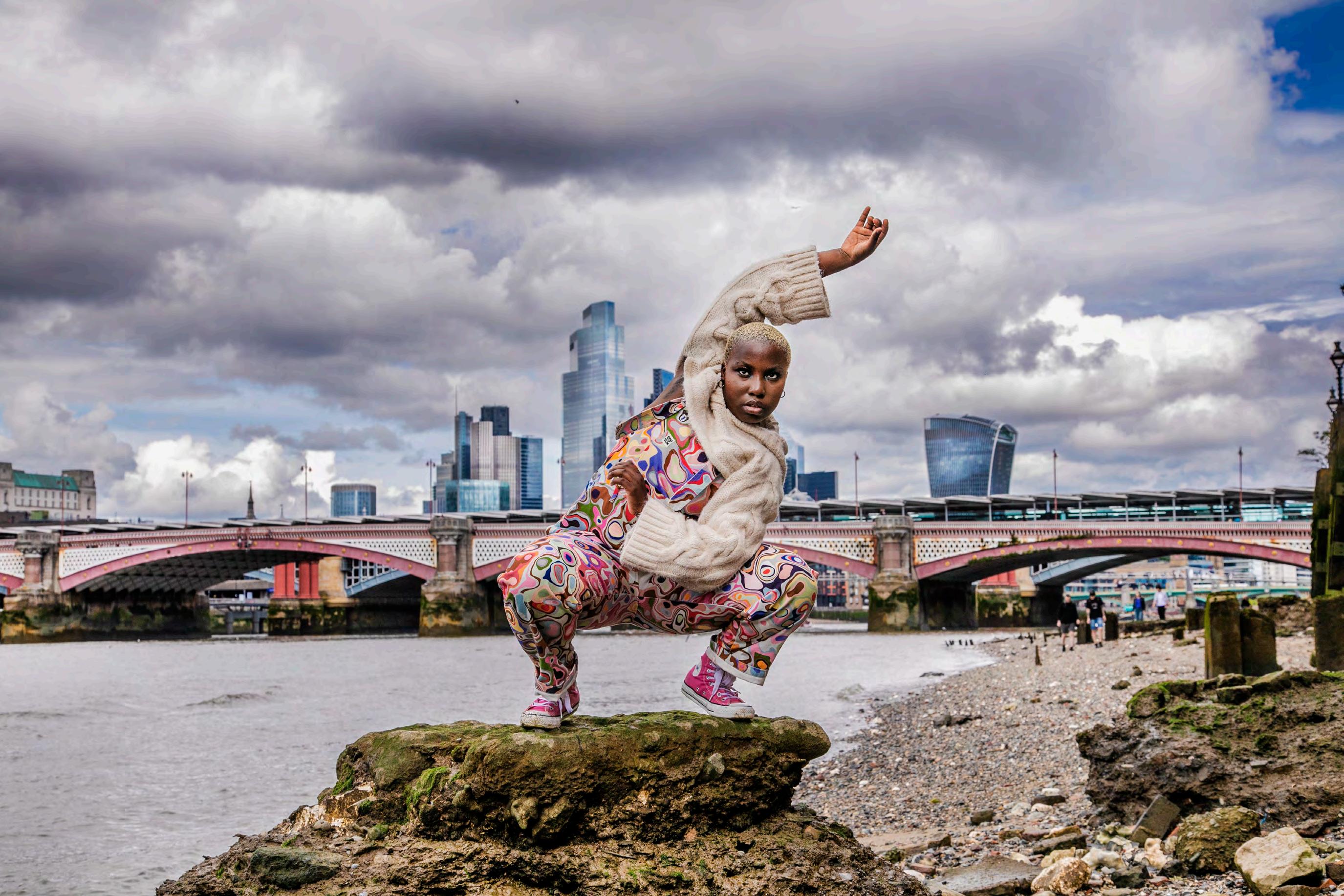



With the mandate of our members, we provide one clear voice for dance and a clear strategy to meet our purpose.
• Providing information to dance professionals, dance teachers, schools and organisations to support a vibrant and healthy dance ecology
• Ensuring children and young people of any background participate in high quality dance through our advocacy and programmes
• Raising the profile of diverse dance and equality for diverse professionals, performances, education and leadership in organisations across the UK

• Advocating loudly for UK dance with government, CYP programme board and health and mental wellbeing providers
• Providing artists at all stages of their careers with opportunities, resources and information to survive and thrive
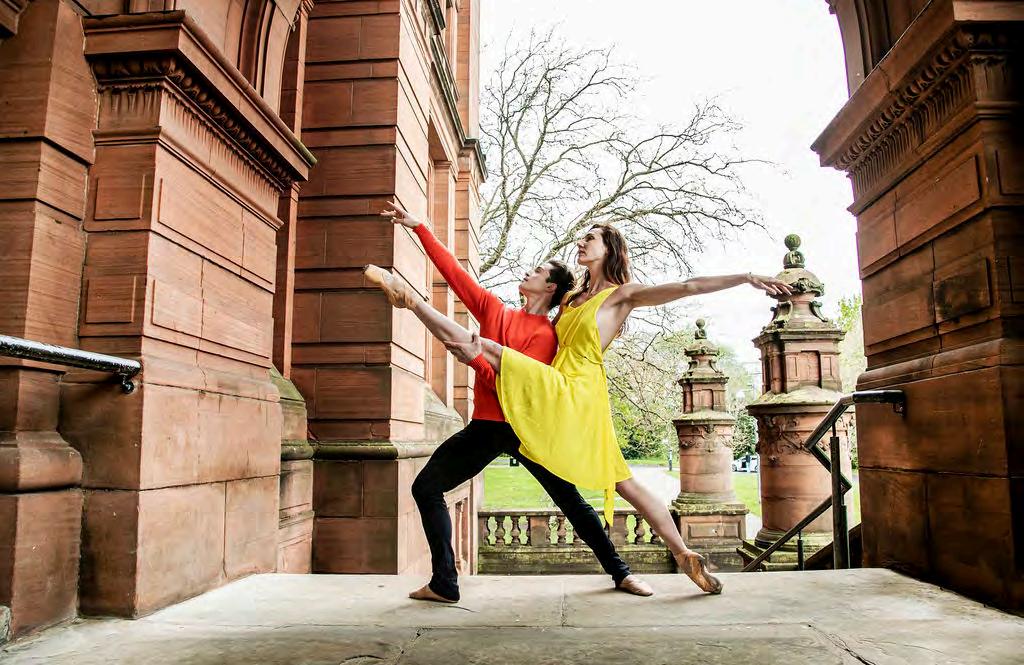 Javier Andreu and Marge Hendrick of Scottish Ballet
Javier Andreu and Marge Hendrick of Scottish Ballet
Through an historic year, where COVID-19 measures disrupted dance performance, training, teaching and opportunities for employees and freelancers, we continued to deliver our strategy through seven areas


We are a voice for Dance with DCMS and DfE for COVID-19 sector recovery, and on Brexit. We advocate for the UK dance sector on issues ranging from diversity, health, education and working conditions for dance artists.
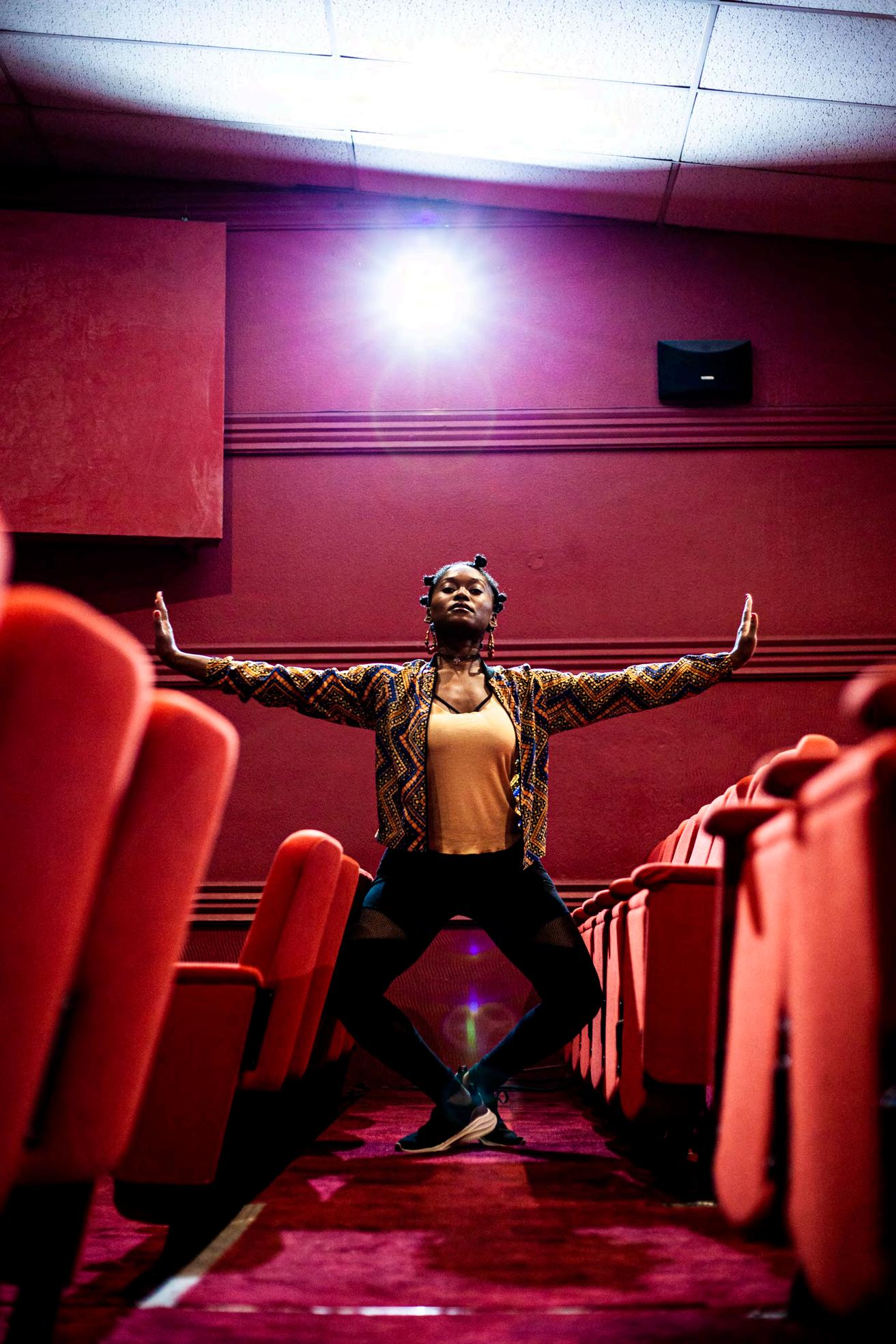
We advocate that Dance of the African Diaspora (DAD), the many recognised DAD forms, practice, education and research, are equally valued and funded in the British cultural experience. Our partners and members inform us of sectoral gaps in equality and decisionmaking representation at every level. They guide our activities, communications and legacy for DAD.
We work to ensure the dance workforce has opportunities to develop practice and sustainability at all stages in their career. We provide resources, webinars, conferences, Continuing Professional Development (CPD) for dance teachers, and training in healthier dance and mental wellbeing practice through our services to dance organisations. We also work with partners to develop or signpost training opportunities.
Our targeted activities to celebrate and support the development of a diverse, sustainable, unified, valued, connected and healthy dance workforce include:
• One Dance UK Awards celebrating those who develop and work tirelessly for dance

• One and HOTFOOT magazines to champion changes and achievements in the dance sector.
We are committed to dancers’ health, wellbeing and performance, and provide specialist provision through our HDP training, dissemination of health information and accessible response to injuries.
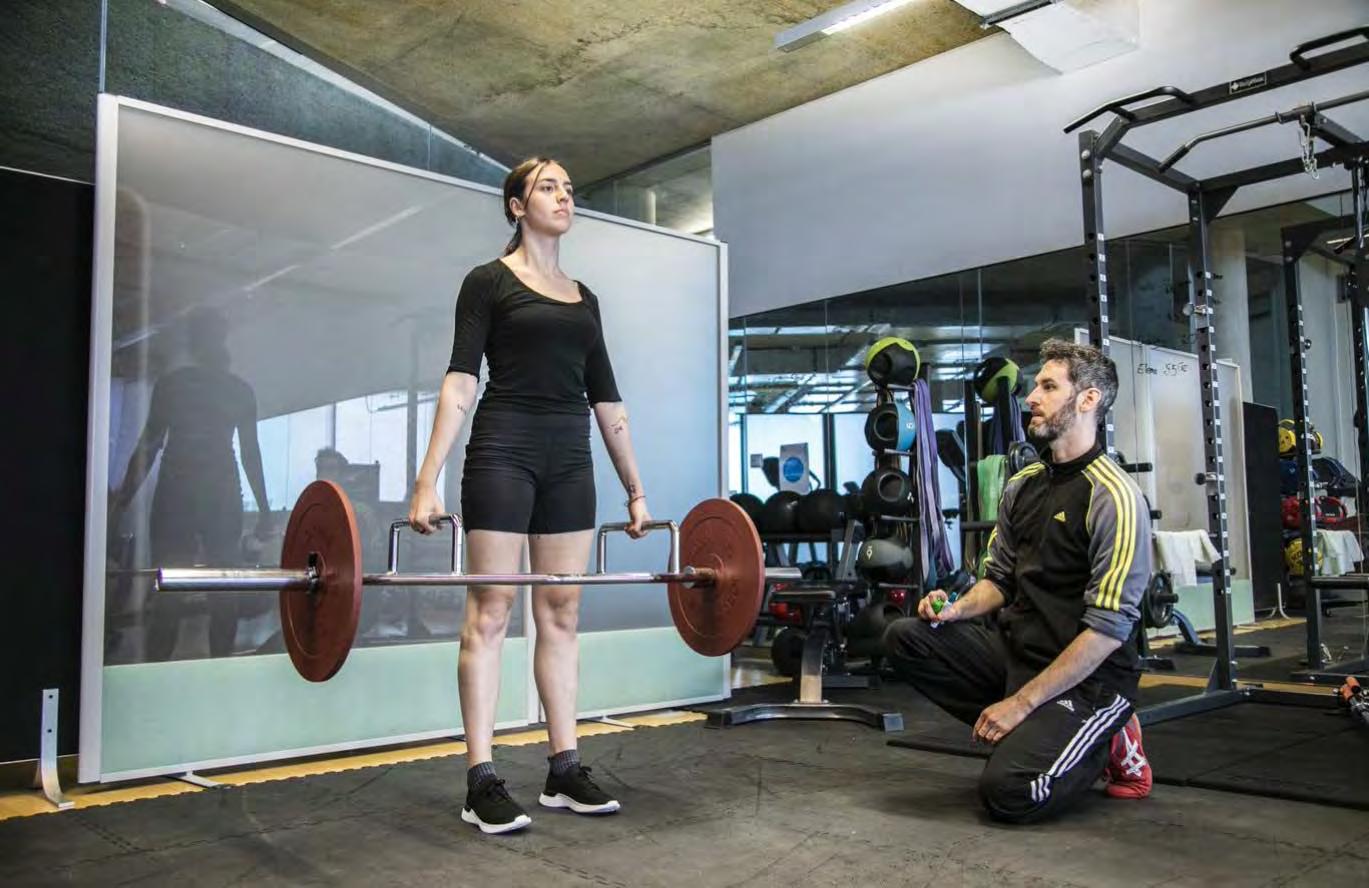
We are founder partners of the National Institute of Dance Medicine and Science with:
• Birmingham Royal Ballet

• The Royal Ballet
• Trinity Laban Conservatoire of Music and Dance
• University of Birmingham
• University of Wolverhampton
Together with the NHS, we ensure there are specialist NHS dance injury clinics in London, Birmingham and Bath. Fundamentally, we are changing attitudes that result in safe practice, injury prevention and wider wellbeing issues being taken more seriously across the sector.
We rely on and are extremely grateful to our volunteers who include former staff, board members, expert panels and our Dance Ambassadors of ages 15 – 25.
Annually, we rely on 40 volunteers who generously give up to 560 hours of their time.
Dance Ambassadors write blogs, speak to Members of Parliament, support us at our events and benefit from engaging with us. Through exciting opportunities, they find out about the various roles involved in dance.


 Young Creatives 2021 cohort by Dani Bower Photography for One Dance UK
Young Creatives 2021 cohort by Dani Bower Photography for One Dance UK



Throughout the COVID-19 restrictions, we continued to serve our members and the dance sector by swiftly changing to online services to advocate, communicate guidance, train dance teachers and professionals and provide opportunities for children and young people to grow in dance. We also held ‘Return to Dance’ webinars for the first time with professionals advising on interpreting the evolving guidelines.
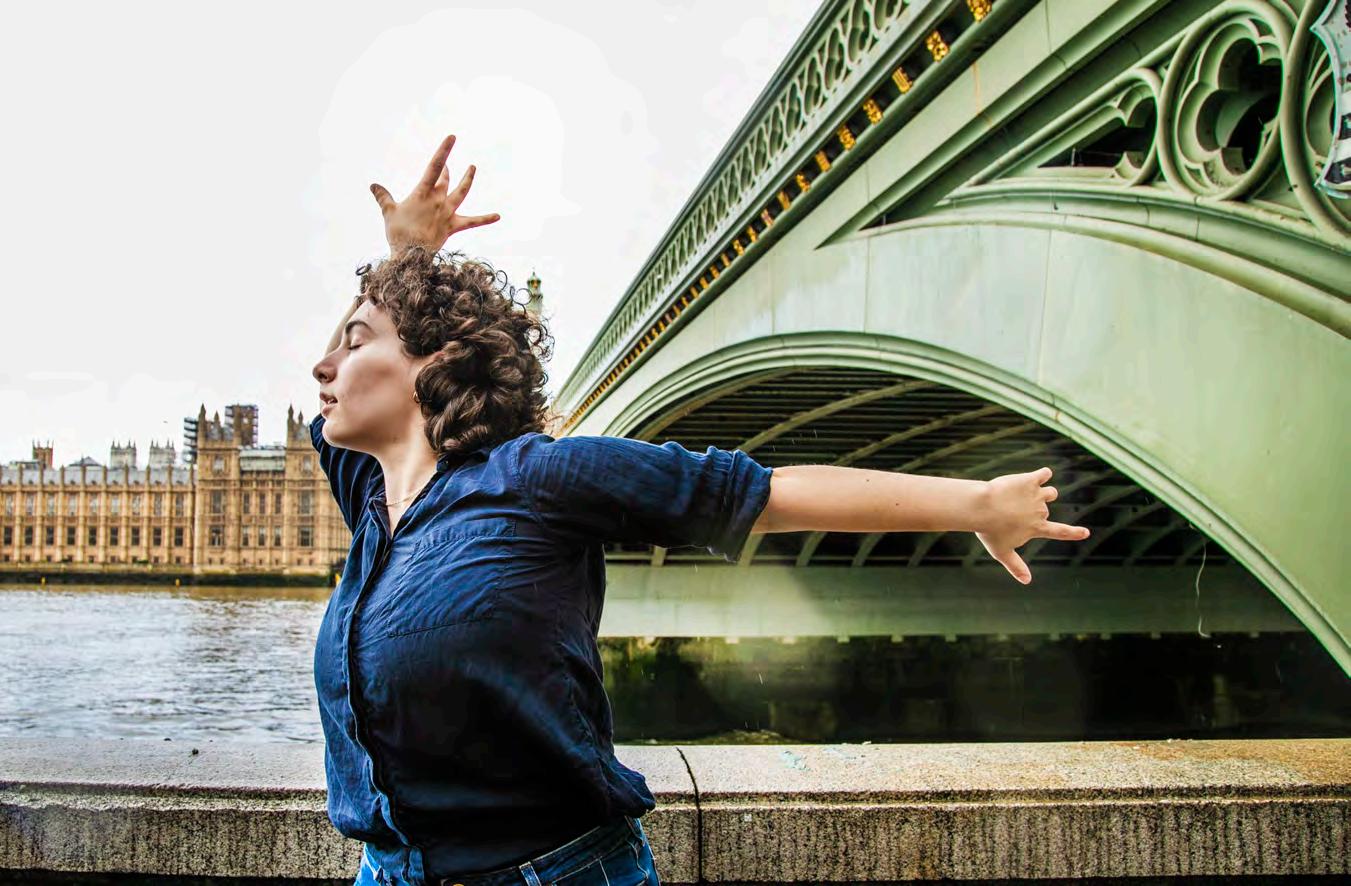
We engaged with many more real-time participants for our work, whilst upholding quality assurance and safeguarding standards.

Our social media followers grew substantially.

Facebook: 87,000 (+1.1%)


Twitter: 11,030 (+16%)
Instagram: 10,343 (+66%)
Over 162,450 users accessed our website during this time (+10.8%) on previous year, generating 455,559 page views.
The One Dance UK Awards reached 154,000 people across all of our social media platforms on the evening of the live broadcast alone.
Participants in the DAD Facebook group rose from 196 in March 2020 to 500 by March 2021
Our Return To Work webinar series attracted 6,000 participants
U.Dance 2020 welcomed 2,699 attendees to events and 6,500 people to the custom built website across the weekend.
know our mission, resulted in strong support to the dance sector
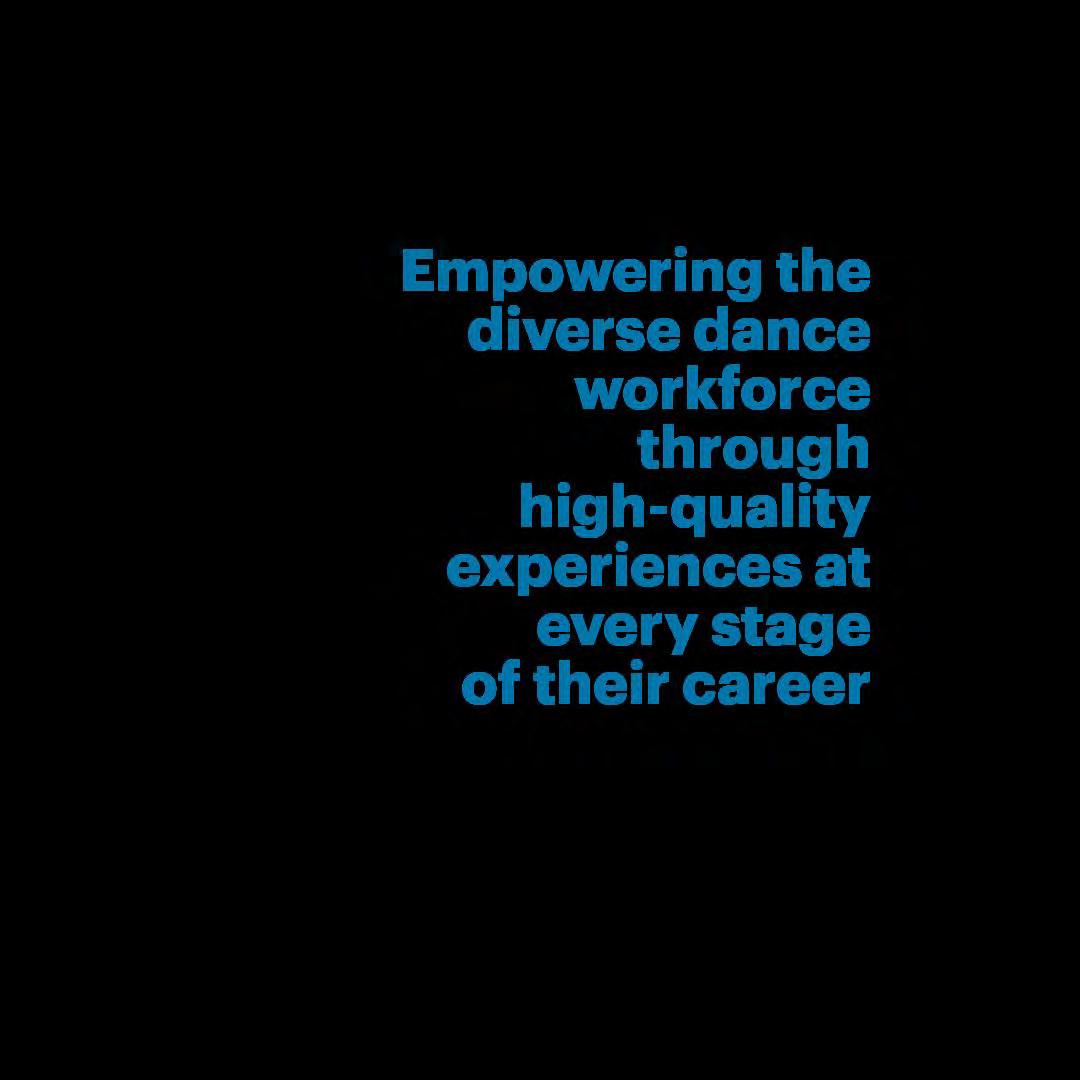
All pre-planned activities for 2020/21 were delivered and moved to online delivery to replace face-to-face services where necessary.
We grew participation and improved our communication with members, the sector and internationally, creating a new website for U.Dance Festival 2020 that increased young people’s participation and engagement by more than five times compared to previous years.
Our online Advocacy surveys, representation of and communications to the sector on COVID and Brexit have been used by individuals and organisations to navigate and make decisions on the various guidance relevant to our sector, across the four UK Nations.
We were a sponsoring partner of the Speak Listen Reset Heal Conference in October and November where arts practitioners and senior management of various organisations addressed racism in the performing arts and the work needed toward Equality, Diversity and Inclusion.
Our 3rd One Dance UK Awards Ceremony (online) also generated more than four times the participation, including international viewers. DAD Social Media activity grew at three times the previous year’s level.
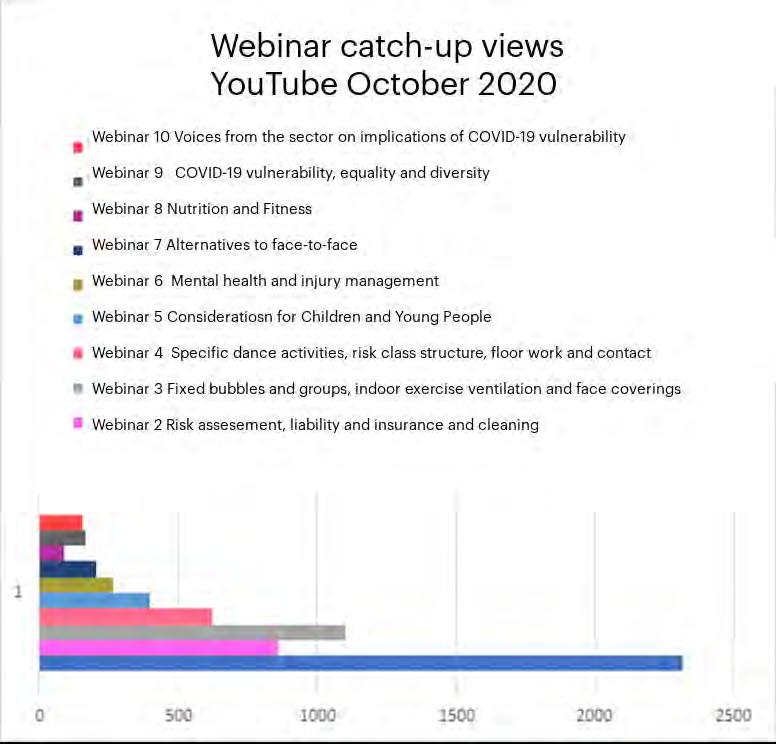
Financially, we lost sponsorship and trading income but equally reduced expenditure through online delivery and covered our operating costs. We did not use Government COVID-19 support nor made any redundancies amongst our much-needed team of staff.
We communicated timely updates of the changing government guidance on the safe return to dance to our members and the wider sector through working groups, email updates, e-newsletters and a series of Return to Dance webinars.

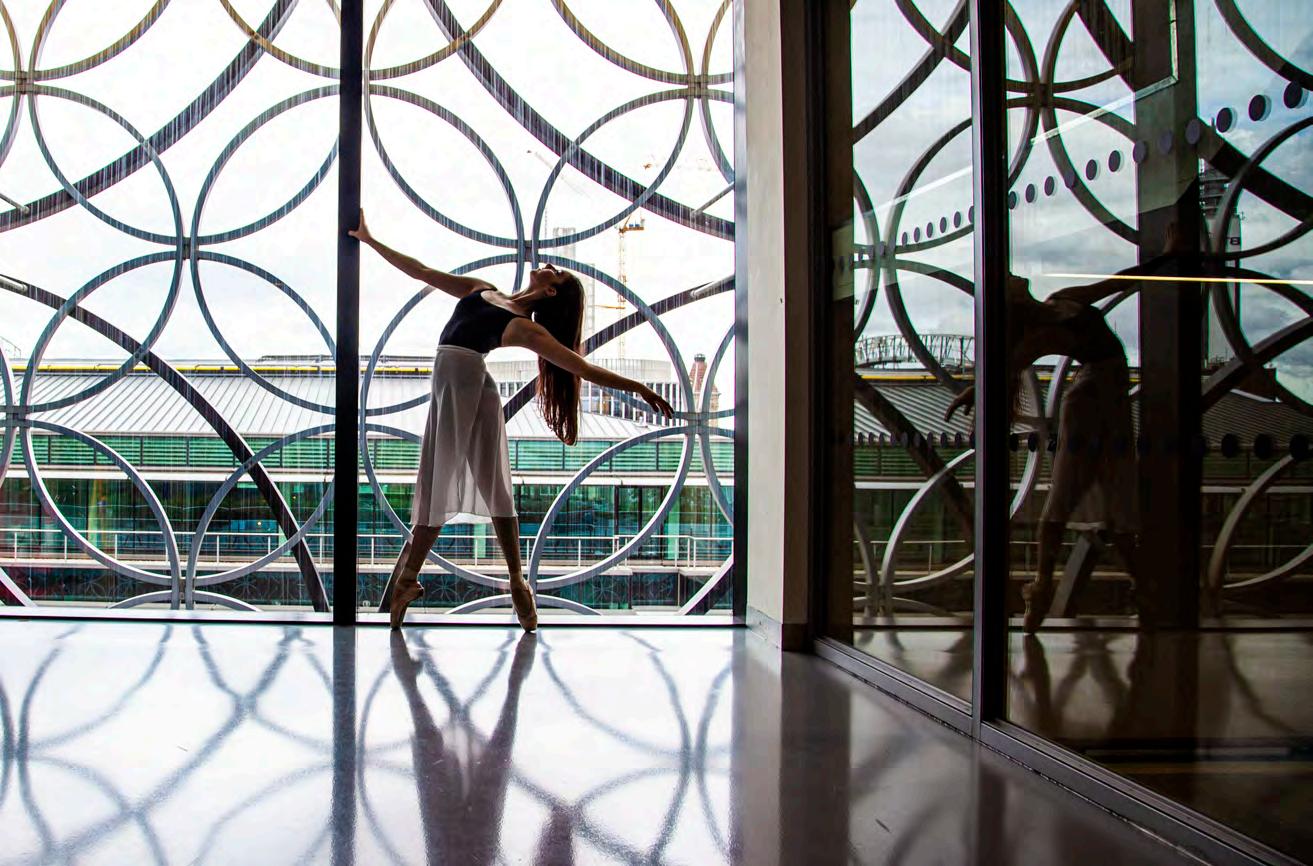
"One Dance UK is our go to place for just about everything."
- member feedback on COVID guidanceYoung Creatives 2021 cohort by Dani Bower Photography for One Dance UK

Our CYP Team shared Return to Dance / COVID-19 Guidance with those working with CYP in dance, both in and out of school, to help them interpret the government guidance around the safe return to dance activity. We will continue to serve the sector following their positive response to our webinars, e-bulletins and conversations with individual members and member organisations to support their circumstances.
We provided the Secretariat for Decolonising the Dance Curriculum roundtable meetings as part of a wider piece of work led by Cultural Learning Alliance and will continue to do so.
We continued to advocate for the equal importance and availability of dance education to all CYP with Ofqual, exam boards, DfE and continue to be involved in the Bacc for the Future campaign. We also provide the Secretariat for the CYP Programme Board.
ce Ambassadors programme for aspiring leaders and advocates for dance 25 has also been reimagined for 21 to remote/online participation. After rking to make the promotion and tion processes more welcoming and ive, we were delighted to have eived our highest ever number of applications for the Dance Ambassadors programme, with over 150 applicants!
We were able to select an increased number of 39 Dance Ambassadors, including eight returning for a second year, representing a more diverse range of backgrounds, dance styles and geographical regions than ever before.

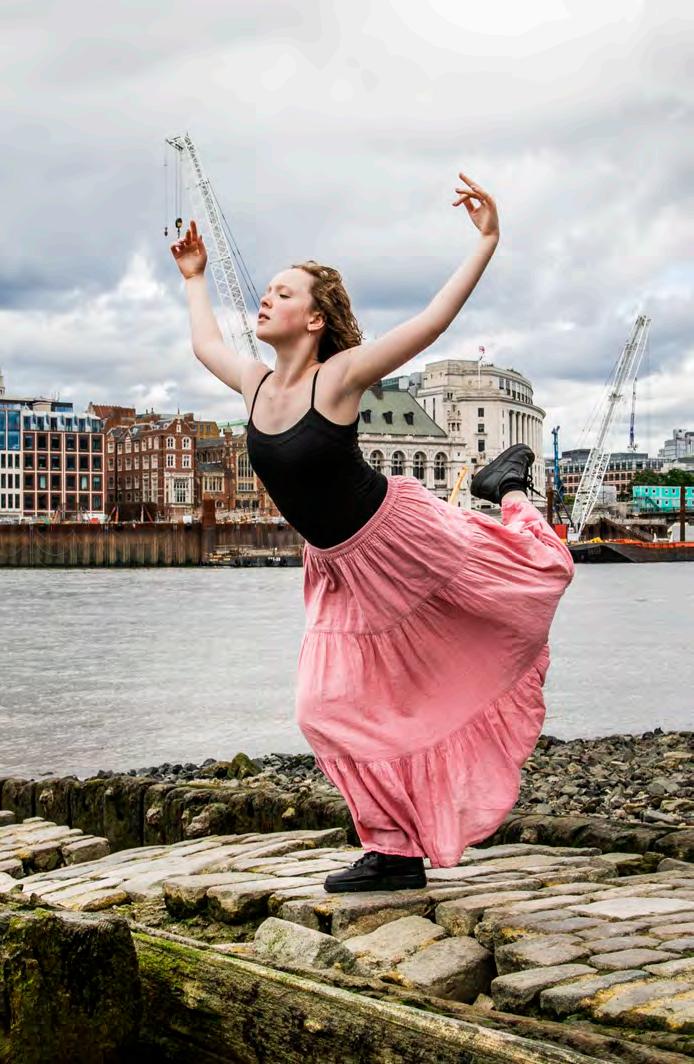
Young Creatives, our programme for aspiring choreographers, was reimagined for 2020/2021 and is now taking the form of a two year programme with predominantly online delivery due to the ongoing pandemic.
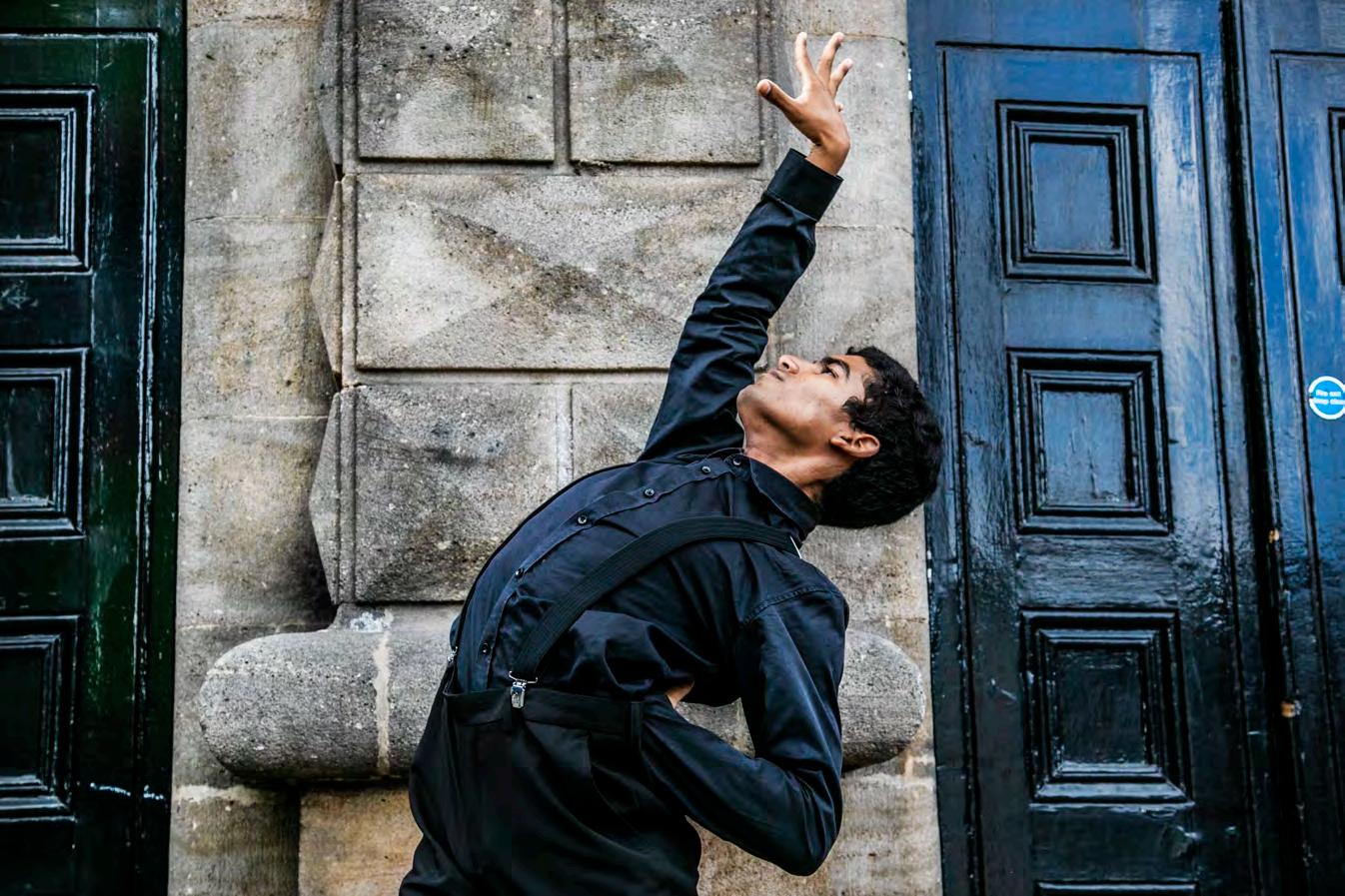

24 young people were selected for Year 1 of the programme and since January have been working under Sarah Dowling’s leadership to take part in a range of bi-monthly online creative workshops to develop their skills and knowledge as choreographers, with a slant towards creating film-based/digital work. Engagement, retention and quality of work have been extremely high, with excellent feedback from all workshop leaders and participants.


U.Dance celebrates and promotes excellence through diversity, best practice, with and by young people in dance across the UK.

U.Dance Regional is our work with regional partners to bring an agreed selection of schools and participants though to the National Festival that was to be in Glasgow, in July 2020. U.Dance Regional was halted due to the COVID-19 pandemic lockdown measures. U.Dance Regional returned online in November 2020.
The ongoing COVID-19 crisis also meant that it was not feasible or safe to deliver the U.Dance National Festival as a live event in July 2020. It was moved online with a new, bespoke website.
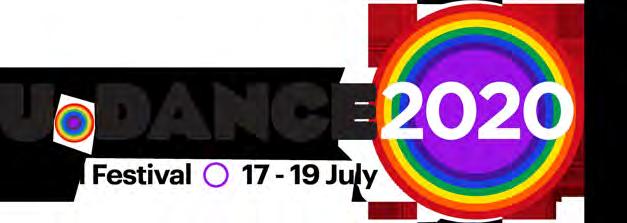
U.Dance Digital took place across the three days originally scheduled for the Glasgow National Festival – 17 to 19 July – and was open to all young people aged 11-19, and up to 25 for disabled dancers. All activities were free of charge to participate in.
The three day event included:
• a public-facing warm up each day, hosted on Instagram live with guest hosts including Dame Darcey Bussell
• Nine Dance Masterclasses from leading dance professionals in a range of styles
• Six Industry Spotlight Q&As looking at a range of professional dance pathways featuring insight from two leading industry professionals
• 10 careers chats
• Three Choreography Challenge Showcases featuring on average 12 groups each evening, selected from the hundreds of entries to the inaugural U.Dance Choreography Challenge on our Facebook page
• U.Dance Writing Challenge saw finalists have their entries featured online, with an opportunity to write a review for One magazine (Autumn 2020)

• 15 Dance Ambassadors assisted with the event in a range of roles
We were delighted with the results:
• Attendees: With 4,700 registrations, we welcomed 2,699 attendances at online masterclasses, careers chats and industry spotlight sessions.
• Pre-event engagement: We received over 100 entries to the Choreography Challenge, involving a total of 320 young dancers. There were 17 submissions to the writing challenge and 29 submissions for U.Dance on Screen.
• 6,500 visitors came to the U.Dance Digital website, with over 14,000 page views.
• The top areas visiting the site were UK (84%), USA (10%) and Australia (2%).

Our new campaign I Move raises the profile and visibility of DAD practitioners on social media, in e-newsletters and in our publication HOTFOOT Online. In 2020/21, our I Move campaign reached out to those working and practicing within the field of DAD and asked them to share with us why DAD is important to them, the challenges that they are facing at the moment and their hopes for the future. We highlighted five artists in the year in multi-disciplinary art and dance forms.
The DAD Facebook group continues to flourish and provide a space for DAD practitioners, leaders and enthusiasts to connect, be inspired and to be part of the ever-growing DAD community. In the twelve months to 31 March 2021, the group grew from 48 to 495 members.
DAD e-bulletin (in 12 months
• March 2020 - 144 recipients 26% 38 opens

• March 2021 - 915 recipients 26% open rate 228 opens
We thank Mercy Nabirye (former Head of DAD) for her enduring contribution to build the DAD sector and One Dance UK.

The third One Dance UK awards ceremony went online in November 2020. Hosted by Akosua Boakye, the first online ceremony offered greater scope for viewers to know more about the awardees and their work. It enjoyed a groundbreaking reach with 900 views on YouTube and 100% positive feedback across all platforms.
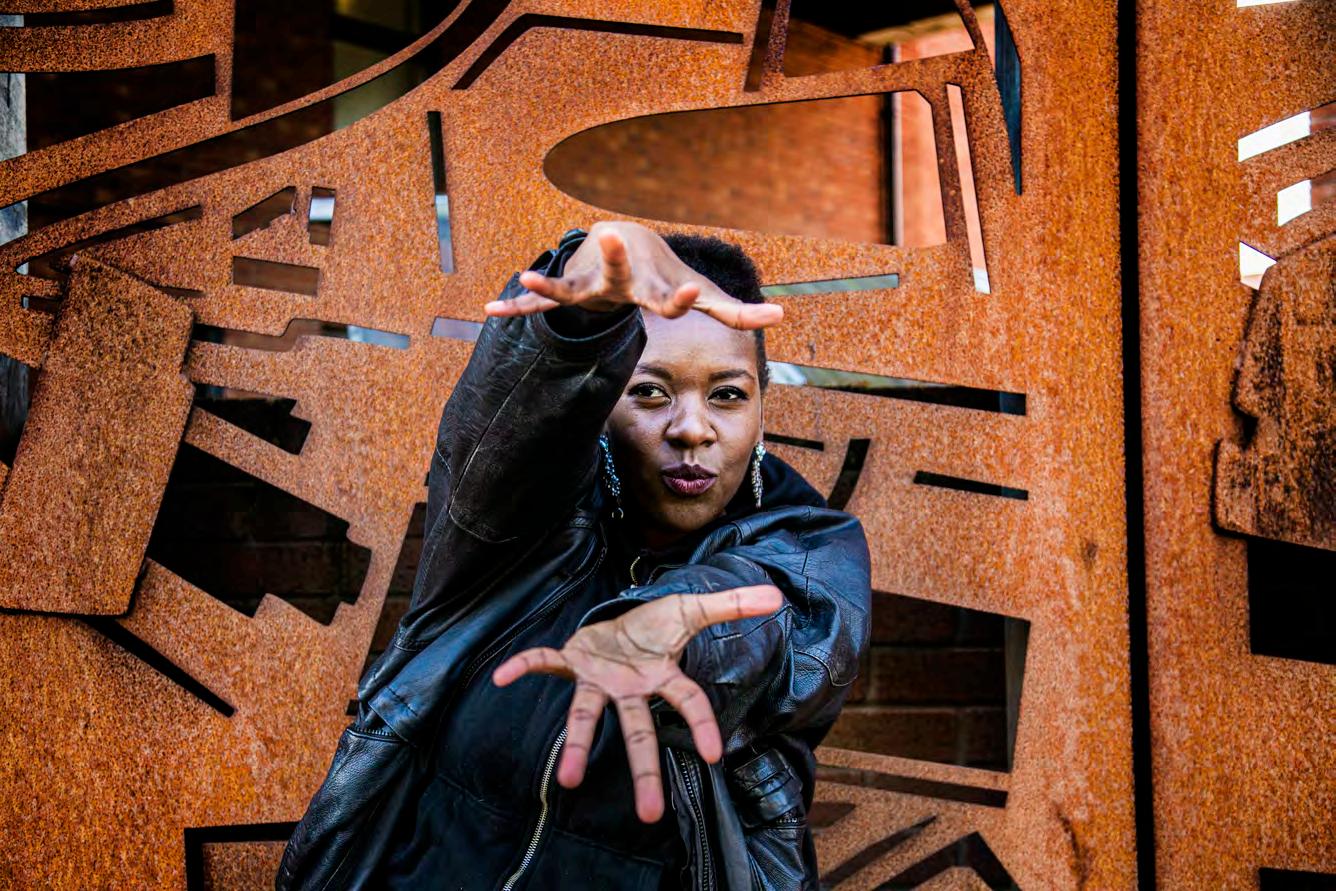
One Dance UK Awards celebrate the excellence of people working across dance – teachers and educators, community participation leaders, researchers, dance scientists, writers and many more across 24 award categories. Awardee and nominee feedback remained extremely positive, expressing pride in being recognised by peers and using the official winner/nominee mark as a marketing tool.
We continued to have a very strong nomination response of over 1,100 nominations with the final three in each category selected by an independent judging panel. We continue to work on increasing the awareness and number of nominations from diverse British people, including people with disabilities and LGBTQI who all contribute strongly to dance.
REACHONTHENIGHT:
Twitter:121K
Facebook: 12K
YouTube:4.9K
Instagram:16.6K
TOTAL CAMPAIGN REACH (MAR - NOV): 500,000

Healthier Dancer Talks went digital throughout 2020/21 with talks continuing to be delivered to dance teaching organisations, primary and secondary school dance teachers, including mental health advocacy and considerations for producers, safe practice for young dancers and support for parents and carers.
The NIDMS partnership saw some positive developments:
Dance On improves physical activity for people over the age of 55 expressed as fun and social interaction through dance. The programme established community dance groups across Bradford, Leeds and Doncaster, engaging 701 older people in regular fun, social dance activity with the average age of attendees at 74 years, and 86% being women. The sessions are open to all and are adapted to welcome people with limited mobility or who may be living with long-term health conditions.

Dance On was suspended in March 2020 due to Covid-19 measures and resumed online in August 2020 through the inventiveness of our delivery partners Yorkshire Dance, DARTS and University of Leeds.
Research findings by University of Leeds show significant improvements in balance and mobility, increased physical activity levels and enhanced wellbeing over a 3, 6 and 12 month period, and have been the main focus in extending the programme from November 2020 to December 2021 through £288,275 funding from Sport England.

Ready,Step,Teach! - Primary and Secondary CPD programmes were created to address the demand from schools and individual teachers partly in response to the most recent Ofsted inspection framework. There are two strands – one for Primary teaching and one for Secondary teaching – with each containing six twilight sessions delivered online over the course of a term. Sessions have been delivered by the CYP team with expert input from external practitioners in certain areas. Uptake has been excellent and feedback overwhelmingly positive.
The CYP team delivered a number of bespoke membership and dance careers talks at colleges and universities. We continue to offer these as an online service and have recently simplified our pricing structure to ensure that delivery is financially viable.
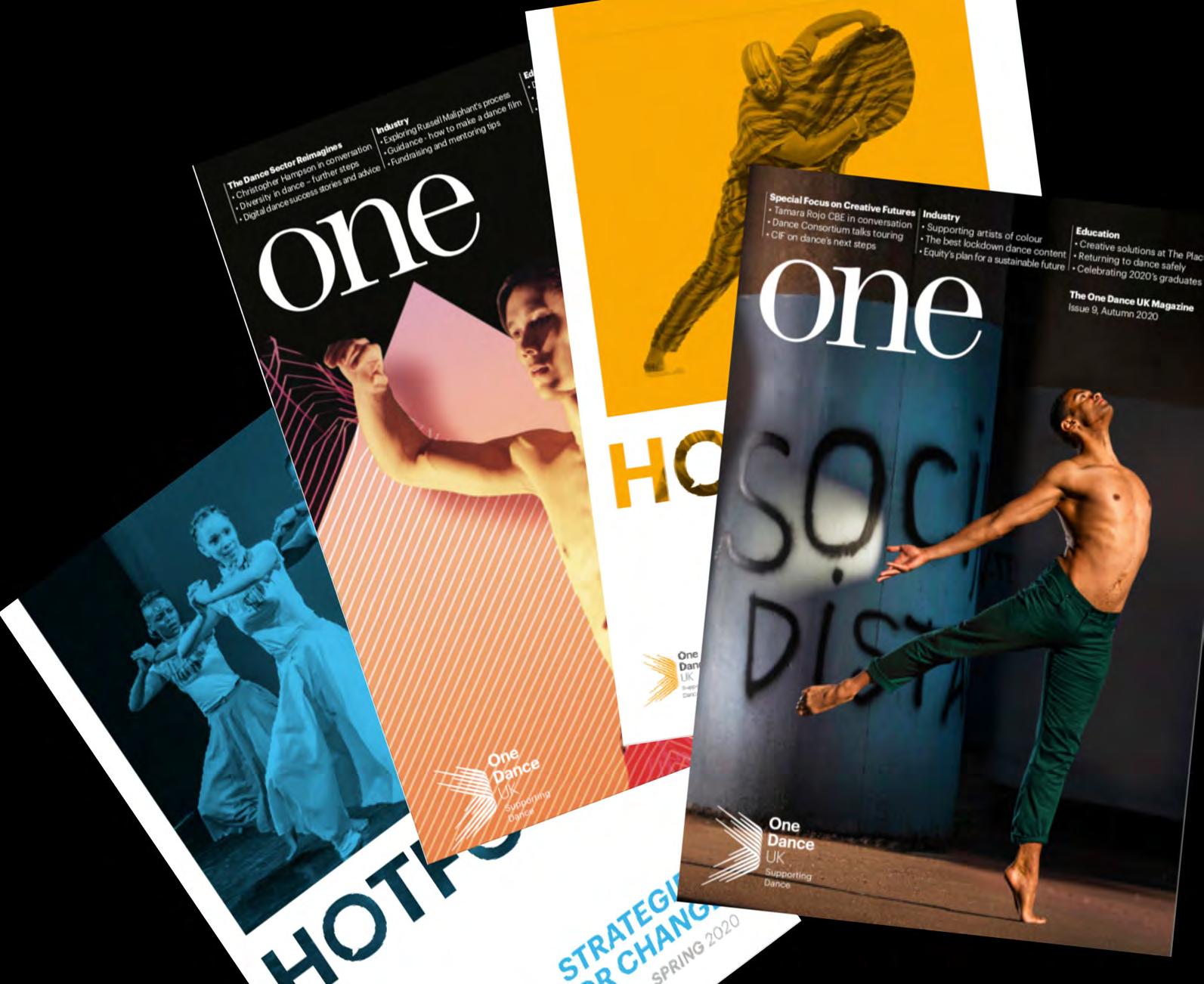
Last year, we completed the creation of a new online learning resource with Cornucopia Films, called Step By Step, to support the delivery of dance at Key Stage 2 and aimed at nonspecialists. The programme was due to be launched by the BBC in the summer term and we contributed to a proposal for a further expansion of the programme into KS1 and KS3, however due to the COVID-19 crisis plans are currently on hold.

We held a meeting with Cornucopia, BBC and our Comms and marketing team and plan a joint launch and promotion of Step By Step in Autumn 2021, in time for the new academic year
Ourmagazinesprovideplatformsfor discussionandcriticaldebatethrough reviews,interviews, andfeature articles.
ONEisourindustryfacingmagazine. HOTFOOT aimstoredressthelimited coverageofdanceof theAfrican Diaspora(DAD)toincreasethe awarenessand understandingofDAD. Hotfoot experienceda93%increasein readershipduring lockdown.
2,600copiesofONEwerecirculatedto members.Therewere2,347views ofHOTFOOTfor the year.
In an extremely difficult year for the dance sector, our members continued to engage with us as we:

• Deepened our communication to keep members constantly updated on the guidance changes for dance and delivered our promised activities and teacher training online.
• Built on our work with Universities to offer concessionary student rates along with introductory training on embarking on a professional career in the dance sector, and healthier dance practice
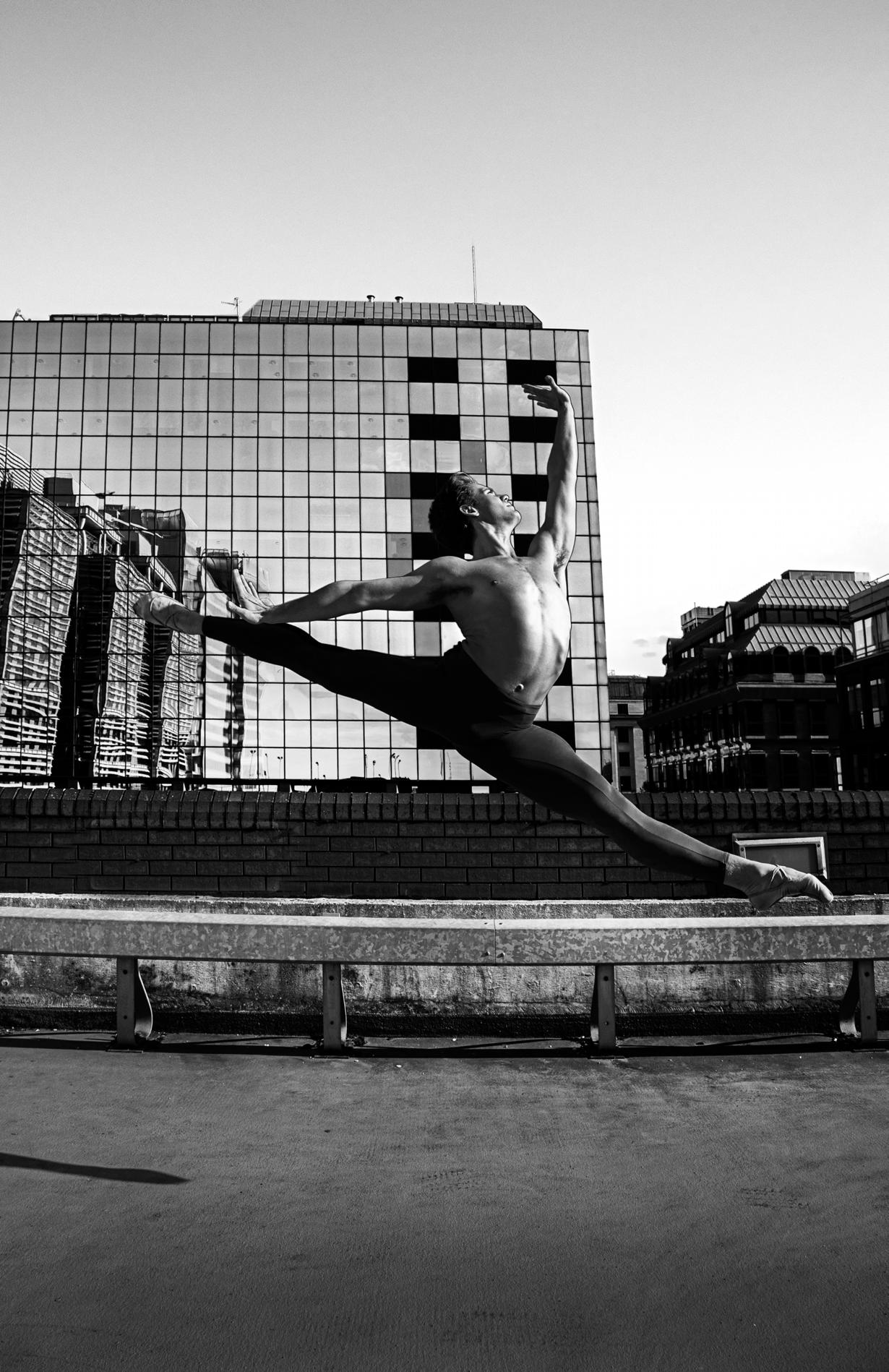

• Offered freelancers three months of free membership to access resources, discounts and benefits. Our target was 100 individuals but the achievement was double this at 200.
At the year-end, we saw a fall in Individual and Healthcare Practitioner membership but a growth in organisational, teacher and student membership.

We are very pleased that Sport England agreed an extension to Dance On from 1 November 2020 to December 2021 with funding of £288,275. We continue to meet the filing requirements of the existing Dance On programme and Paul Hamlyn Foundation’s Backbone fund.
We engaged two freelance fundraisers with contracted obligation and company monitoring of compliance with the Charities Act 2016 and guidance from the Fundraising Regulator's voluntary regulation scheme. We required and monitored protection around vulnerable people and members of the public from unreasonable intrusion on a person’s privacy, unreasonably persistent approaches for the purpose of soliciting or otherwise procuring money or other property on behalf of the charity or placing undue pressure on a person to give money or other property. These fit with our safeguarding policy on all activities.
There were no complaints received by One Dance UK or our freelance fundraisers for our fundraising activities.
We thank our members for the confidence and trust placed in us.Callum Findlay-White of Birmingham Royal Ballet by Dani Bower Photography for One Dance UK Sugar n Spin by Dani Bower Photography for One Dance UK
Given our experience in 2020/21, we will continue to deliver our activities online in 2021/22, graduating to a hybrid model of delivery as confidence in face-to-face activity and socialising returns. The benefits of wider online reach, accessibility and participation for children and young people, dance professionals and organisations allow us to achieve our mission and objectives more effectively.

In this financial year, we will hold sessions with Board and staff to develop the hybrid model for our activities with rollout in the next financial year 2022/23. As we will rely increasingly on data and analytics, we will build our data assets and use this year as a start to digital transformation of the organisation so we use collected data better to:
• Improve our service users’ experience;
• Increase revenue through targeted offers based on knowledge of users’ needs;
• Increase monitoring, evaluation and improvement of activities based on rich, timely information.
In 2021/22 our Head of Workforce Development (a new role focused on Equality, Diversity and Inclusion) will work with our Board, staff and sectoral partners to undertake a root and branch review of the value of diversity and inclusion within our organisation. This role will focus on strategies for our members and the sector to develop positive and sustainable .
We will also continue our direct activities for Dance of the African Diaspora (DAD):
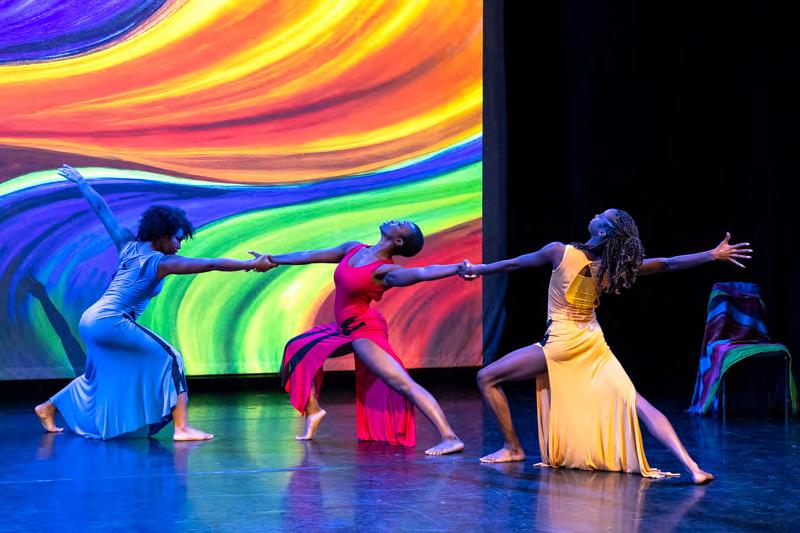
DAD Mapping, our research report identified six priorities that professionals in the DAD sector see as key for progress. We shall focus on Fundraising difficulty for DAD work. Hotfoot Online magazine: 2021’s theme is Paving the Way, looking at new approaches, emerging voices and providing space for young perspectives.
In autumn, there will be a 21st anniversary edition. Hotfoot experienced a 93% increase in readership during lockdown.
We have issued a survey to the wider sector to gauge how the I Move campaign is being received. We will review the results and respond in April to May 2021. We will continue with the DAD Facebook group and e-bulletin.
The 4th One Dance UK Awards will take place online in November 2021.
CPD Training for dance teachers will be online with a new Primary Dance Teacher qualification with People Dancing in September 2021 and Ready, Step, Teach in November 2021 onwards. Healthier Dancer Practice Talks are provided free online with twice weekly webinars from May dance, physical and mental health and wellbeing. HDP and NIDMS webinars receive attendances ranging from 200 to 700 attendees per session
The Trustees are satisfied that One Dance UK is a going concern at the time of signing the accounts as:
• Core funding of £750,000 per annum is expected to continue as SSO within Arts Council England’s National Portfolio of Organisations to March 2022;

• we have adjusted our future budgets and cashflow projections to anticipate lower than projected, earned income along with significantly lower programme costs through switching to online delivery. We expect to cover our operating costs to March 2022 and March 2023;
• our unrestricted reserves are at the appropriate level required by our Trustees and include consideration of the impact COVID-19 measures.
We are a Sector Support Organisation within Arts Council England’s National Portfolio of Organisations. Arts Council England is our largest funder with funding used to meet our programme of activities and contribute to core costs.
Our Trustees have a risk management strategy which comprises:
• a biannual review of the principal risks and uncertainties that the charity faces;
Although we faced a difficult year, we maintained our full complement of staff who repurposed and delivered almost all our services to the sector and members, and contributed to income growth in:
• Course sales (↑15%),
• POP (↑67%) and
• Membership (↑5%).
In presenting our activities online, we made significant savings in travel, venue hire, accommodation and other activity costs that compensated for falls in sponsorship and trading income.
We achieved a surplus of £58,733 on unrestricted activities (£5,972 at 31 March 2020).
Our restricted funds activities continue to show the timing difference of funds received in previous years and drawdowns in 2020/21. No restricted fund is in deficit at the year-end.
We have made significant reductions to budgeted earned income for the next two financial years while equally reducing projected programme costs as we will deliver our largest activities online in 2021/22. Our core costs will be met by our NPO grant with Arts Council England, membership and other sources of income that are set with our 2020/21 experience. We expect to cover our operating costs to 31 March 2022 and meet our planned activities for beneficiaries.

• the establishment of policies, systems and procedures to mitigate those risks identified in the biannual review;
• the implementation of procedures designed to minimise or manage any potential impact on the charity should those risks materialise.
This work has identified that meeting fundraising targets and the impact of COVID-19 measures are the major financial risks we face to ensure we serve beneficiaries and maintain financial resilience.
The risks have been mitigated through:
• adjusting our business model, budgets and cashflows for the next two financial years in response to COVID-19 measures, with lower than originally budgeted earned income matched by equally lower operating costs through digital delivery;
• growing online delivery, communication and advocacy for the dance sector;
• maintaining our full staff without redundancies or furlough;
• continued funding from Arts Council England as principal NPO funder to 31 March 2022 and Paul Hamlyn Foundation to 31 March 2022, contributing to core and educational costs based on funding conditions that we are certain will be met.
We regularly review the fundraising achieved against targets to make any adjustments to our activities should the need arise.
The Trustees of the charity have set the unrestricted reserves policy at a level so that there are sufficient funds to cover:
• three months of operations in the event of any unplanned closure and its impact on beneficiaries, staff and other financial commitments;
• fluctuations in annual projected income; and
• foreseeable financial commitments.
The Trustees have designated £100,000 of general funds for the purchase and implementation of a cloud-based CRM system and upgraded website for membership, events, marketing, donations and reporting. The CRM system and website are essential for improving our beneficiaries ease of use while matching future digital demands for our services and resources. We shall also significantly improve:
Our beneficiaries experience, accessibility and communications with us; Our operations with greater staff time dedicated to interacting with our members and users;
Our strategy and impact measurement with effective reporting and data analysis.
Purchase is expected to be undertaken toward the end of the financial year 2021/22 with the start date of the fully functional CRM system and website set for 1 April 2023.
At the year end, we hold £317,888 in unrestricted reserves (£359,155 at 31 March 2020). The designated reserves at 31 March 2021 amounted to £100,000.
This has been identified by the Trustees as an appropriate level given the plans for the future activities of the charity.
At 31 March 2021, the Research Grant from Arts Council England is £2,500 in deficit. The Grant will be recovered by 31 December 2021. No other restricted fund is in deficit at the year end. The Charity holds £18,167 at 31 March 2021 (£9,431 at 31 March 2020) in restricted funds for specific projects.


One Dance UK is a company limited by guarantee governed by its Memorandum and Articles of Association dated 11 May 1994. It is registered as a charity with the Charity Commission. Anyone over the age of 18 can become a member of the Company and there are currently 1,354 members, each of whom agrees to contribute £1 in the event of the charity winding up.
As set out in the Articles of Association the Trustees are appointed by members of One Dance UK at the Annual General Meeting (AGM) or by postal vote. The Trustees shall retire from office at the fourth AGM following the AGM at which his or her current term commenced. Any Trustee who has served two consecutive terms can only be re-appointed after a one-year break from office.
All members are circulated with invitations to nominate Trustees prior to the AGM advising them of the retiring Trustees and requesting nominations for the AGM. If a vacancy on the Board occurs between AGMs the Board may co-opt a person to serve until the next AGM when such person may stand for election. If the Trustees determine that the Board is lacking any particular skill then the Trustees may appoint an additional three Trustees at any time with a term not exceeding four years from the AGM that their appointment was accepted by members.
New Trustees are required to have an induction into all key areas of One Dance UK’s work and its constitution, and to be briefed on their legal obligations prior to their first Board meeting. They must sign a ‘fit and proper person’ declaration, conflict of interest memorandum, and are provided with good governance documentation, financial and management accounts, the Memorandum and Articles of Association and the latest business plan.
The Board of Trustees, which can have up to 20 members, is responsible for decisions regarding policy and overall direction. The Board monitors progress of programmes and initiatives, finance and other developments at quarterly meetings and reports to the membership at the AGM. There are subcommittees covering relocation and finance that meet regularly.
A Chief Executive is appointed by the Trustees to manage the day-to-day operations of the charity. To facilitate effective operations, the Chief Executive has delegated authority, within terms of delegation approved by the Trustees, for operational matters including finance, employment, project and programme delivery and fundraising

 SENIOR MANAGEMENT TEAM
SENIOR MANAGEMENT TEAM
The Charity Trustees (who are also the Directors of One Dance UK for the purposes of company law) are responsible for preparing a Trustees’ annual report and financial statements in accordance with applicable law and United Kingdom Accounting Standards (United Kingdom Generally Accepted Accounting Practice).

Company law requires the Charity Trustees to prepare financial statements for each year which give a true and fair view of the state of affairs of the charitable company and of the incoming resources and application of resources, including the income and expenditure, of the Charity for that period. In preparing the financial statements, the trustees are required to:
1.select suitable accounting policies and then apply them consistently;
Chief Executive | Andrew Hurst MBE
None of our Trustees receive remuneration or other benefit from their work with the charity. Any connection between a Trustee or senior manager of the charity with a related party must be disclosed to the full board of Trustees in the same way as any other contractual relationship with a related party. In the current year no such related party transactions were reported.
The charity is a paying member of umbrella groups Creative Industries Federation and UK Dance Network. The charity is also a non-paying participant of other umbrella groups that are What Next?, Culture Counts and the Cultural Learning Alliance. Our membership and affiliations do not impact on the operating policies adopted by the charity.
COVID-19 control measures on our wider network have not impacted our operations.
2.observe the methods and principles in the Charities SORP;
3.make judgements and estimates that are reasonable and prudent;
4.state whether applicable UK accounting standards have been followed, subject to any material departures disclosed and explained in the financial statements;
5.prepare the financial statements on the going concern basis unless it is inappropriate to presume that the charity will continue in business.
The Trustees are responsible for keeping proper accounting records that disclose with reasonable accuracy at any time the financial position of the Charity and to enable them to ensure that the financial statements comply with the Companies Act 2006. They are also responsible for safeguarding the assets of the Charity and hence taking reasonable steps for the prevention and detection of fraud and other irregularities.
The Trustees are responsible for the maintenance and integrity of the corporate and financial information included on the Charitable company’s website. Legislation in the United Kingdom governing the preparation and dissemination of financial statements may differ from legislation in other jurisdictions.
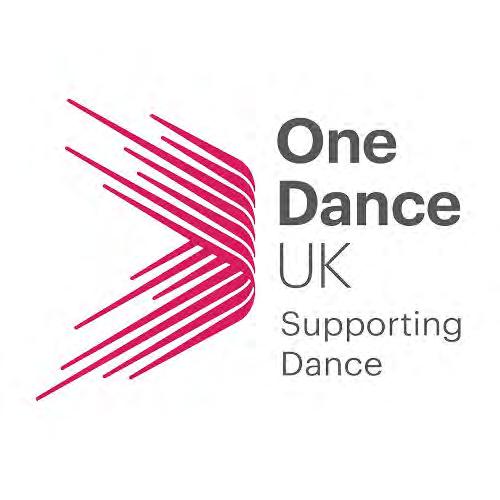
FOR THE YEAR ENDED 31 MARCH 2021
Each of the Trustees (who are also the Directors of the company) at the time when this Trustees’ Report is approved has confirmed that:
• so far as the Trustee is aware, there is no relevant audit information of which the company’s auditor is unaware; and
• the Trustee has taken all the steps that ought to have been taken as a Trustee in order to be aware of any relevant audit information and to establish that the company’s auditor is aware of that information.”
3 December 2021
Trustees
Amanda Skoog MNZN (Chair) (appointed 18 November
2020) Andrew Carrick
Anthony Browne
Anu Giri (resigned 6 July 2020)
David Watson
Denise Nurse
Jane Mary Bonham-Carter (appointed 7 December 2020)
Julian Flitter
Piali Ray
Susannah Simons
Susan Wyatt (resigned 6 July 2020)
Victoria Igbokwe
Company registered number: 2931636
Charity registered number: 801552
Registered office:
Chief executive:
Independent auditors:
Bankers:
Solicitors:
Dance Hub, Thorp Street, Birmingham, B5 4TB
Andrew Hurst
Haysmacintyre LLP, 10 Queen Street, London EC4R 1AG
Cater Allan, 9 Nelson Street, Bradford, BD1 5AN CAF Bank Ltd, 25 Kings Hill Avenue, West Malling Kent ME19 4JQ
HSBC Bank Plc, 18 Ballards Lane, Church End, Finchley, London, N3
Level Law, 20 - 22 Shelton Street, Covent Garden, London, WC2H 9JJ
Opinion
We have audited the financial statements of One Dance UK for the year ended 31 March 2021 which comprise the Statement of Financial Activities, the Income and Expenditure account, the Balance Sheet, the Statement of Cash Flow and notes to the financial statements, including a summary of significant accounting policies. The financial reporting framework that has been applied in their preparation is applicable law and United Kingdom AccountingStandards,including Financial ReportingStandard 102 The Financial Reporting Standard applicable in the UK and Republic of Ireland (United Kingdom Generally Accepted Accounting Practice).
In our opinion, the financial statements:
• give a true and fair view of the state of the charitable company’s affairs as at 31 March 2021 and of the charitable company’s net movement in funds, including the income and expenditure, for the year then ended;
• have been properly prepared in accordance with United Kingdom Generally Accepted Accounting Practice; and
• have been prepared in accordance with the requirements of the Companies Act 2006.
We conducted our audit in accordance with International Standards on Auditing (UK) (ISAs (UK)) and applicable law. Our responsibilities under those standards are further described in the Auditor’s responsibilities for the audit of the financial statements section of our report. We are independent of the charity in accordance with the ethical requirements that are relevant to our audit of the financial statements in the UK, including the FRC’s Ethical Standard, and we have fulfilled our other ethical responsibilities in accordance with these requirements. We believe that the audit evidence we have obtained is sufficient and appropriate to provide a basis for our opinion.
In auditing the financial statements, we have concluded that the trustees’ use of the going concern basis of accounting in the preparation of the financial statements is appropriate.
Based on the work we have performed, we have not identified any material uncertainties relating to events or conditions that, individually or collectively, may cast significant doubt on the charitable company's ability to continue as a going concern for a period of at least twelve months from when the financial statements are authorised for issue.
Our responsibilities and the responsibilities of the trustees with respect to going concern are described in the relevant sections of this report.
The Trustees are responsible for the otherinformation. Theotherinformation comprises theinformation included in the Trustees’ Report. Our opinion on the financial statements does not cover the other information and, except to the extent otherwise explicitly stated in our report, we do not express any form of assurance conclusion thereon.
In connection with our audit of the financial statements, our responsibility is to read the other information and, in doing so, consider whether the other information is materially inconsistent with the financial statements or our knowledge obtained in the audit or otherwise appears to be materially misstated. If we identify such material inconsistencies or apparent material misstatements, we are required to determine whether there is a material misstatement in the financial statements or a material misstatement of the other information. If, based on the work we have performed, we conclude that there is a material misstatement of this other information, we are required to report that fact. We have nothing to report in this regard.
In our opinion, based on the work undertaken in the course of the audit:
In our opinion, based on the work undertaken in the course of the audit:
• the information given in the Trustees’ Report (which includes the Directors’ report prepared for the purposes of company law) for the financial year for which the financial statements are prepared is consistent with the financial statements; and
• the Directors’ report included within the Trustees’ Report have been prepared in accordance with applicable legal requirements.
In the light of the knowledge and understanding of the charitable company and its environment obtained in the course of the audit, we have not identified material misstatements in the Trustees’ Report (which incorporates the Directors’ report).
We have nothing to report in respect of the following matters in relation to which the Companies Act 2006 requires us to report to you if, in our opinion:
• adequate accounting records have not been kept by the charitable company; or
• the charitable company financial statements are not in agreement with the accounting records and returns; or
• certain disclosures of trustees’ remuneration specified by law are not made; or
• we have not received all the information and explanations we require for our audit; or
• the trustees were not entitled to prepare the financial statements in accordance with the small companies’ regime and take advantage of the small companies’ exemptions in preparing the trustees’ report and from the requirement to prepare a strategic report.
As explained more fully in the trustees’ responsibilities statement set out on page 38, the trustees (who are also the Directors of the charitable company for the purposes of company law) are responsible for the preparation of the financial statements and for being satisfied that they give a true and fair view, and for such internal control as the trustees determine is necessary to enable the preparation of financial statements that are free from material misstatement, whether due to fraud or error.
In preparing the financial statements, the trustees are responsible for assessing the charitable company’s ability to continue as a going concern, disclosing, as applicable, matters related to going concern and using the going concern basis of accounting unless the trustees either intend to liquidate the charitable company or to cease operations, or have no realistic alternative but to do so.
Our objectives are to obtain reasonable assurance about whether the financial statements as a whole are free from material misstatement, whether due to fraud or error, and to issue an auditor’s report that includes our opinion. Reasonable assurance is a high level of assurance, but is not a guarantee that an audit conducted in accordance with ISAs (UK) will always detect a material misstatement when it exists. Misstatements can arise from fraud or error and are considered material if, individually or in the aggregate, they could reasonably be expected to influence the economic decisions of users taken on the basis of these financial statements.
Irregularities, including fraud, are instances of non-compliance with laws and regulations. We design procedures in line with our responsibilities, outlined above, to detect material misstatements in respect of irregularities, including fraud. The extent to which our procedures are capable of detecting irregularities, including fraud is detailed below:
Based on our understanding of the charitable company and the environment in which it operates, we identified that the principal risks of non-compliance with laws and regulations related to charity and company law applicable in England and Wales, and we considered the extent to which non-compliance might have a material effect on the financial statements. We also considered those laws and regulations that have a direct impact on the preparation of the financial statements such as the Companies Act 2006 and the Charities Act 2011, and consider other factors such as income tax, payroll tax and VAT.
We evaluated management’s incentives and opportunities for fraudulent manipulation of the financial statements (including the risk of override of controls),and determined that the principal risks were related to revenue recognition and management override of controls. Audit procedures performed by the engagement team included:
- Inspecting correspondence with regulators and tax authorities;
- Discussions with management including consideration of laws and regulation and risks of fraud;
- Evaluating management’s controls designed to prevent and detect irregularities; and
- Identifying and testing journals, in particular journal entries posted with unusual account combinations or with unusual descriptions
A further description of our responsibilities for the audit of the financial statements is located on the Financial Reporting Council’s website at: www.frc.org.uk/auditorsresponsibilities This description forms part of our auditor’s report.
Use of our report
This report is made solely to the charitable company's members, as a body, in accordance with Chapter 3 of Part 16 of the Companies Act 2006 Our audit work has been undertaken so that we might state to the charitable company's members those matters we are required to state to them in an Auditor's report and for no other purpose To the fullest extent permitted by law, we do not accept or assume responsibility to anyone other than the charitable company and the charitable company's members, as a body, for our audit work, for this report, or for the opinions we have formed.
Jane Askew (Senior Statutory Auditor)
10 Queen Street Place
For and on behalf of Haysmacintyre LLP, Statutory Auditor London EC4R 1AG3 December 2021
ONE DANCE UK STATEMENT OF FINANCIAL ACTIVITIES (INCORPORATING THE INCOME & EXPENDITURE ACCOUNT)
FOR THE YEAR ENDED 31 MARCH 2021
All income derives from continuing activities.
The notes on pages 48 to 62 part of these financial statements.
ONE DANCE UK (a Company Limited by Guarantee)
AT 31 MARCH 2021
The company’s financial statements have been prepared in accordance with the provisions applicable to companies subject to the small companies regime.
The financial statements were approved and authorised for issue by the Trustees on 3 December 2021 and signed on their behalf by:
AmandaSkoog
Amanda Skoog MNZM, ChairJulianFlitter
Julian Flitter, DirectorThe notes on pages 48 to 62 form part of these financial statements.
The notes on pages 48 to 62 form part of these financial statements.
The financial statements have been prepared in accordance with Accounting and Reporting by Charities: Statement of Recommended Practice applicable to charities preparing their accounts in accordance with the Financial Reporting Standard applicable in the UK and Republic of Ireland (FRS 102), Charities SORP (FRS 102) (Second edition – effective 1 January 2019), and the Companies Act 2006.
One Dance UK meets the definition of a public benefit entity under FRS 102. Assets and liabilities are initially recognised at historical cost or transaction value unless otherwise stated in the relevant accounting policy.
The company is a company limited by guarantee. The members of the company are the Trustees named on page 1. In the event of the company being wound up, the liability in respect of the guarantee is limited to £1 per member of the company.
The trustees consider that there are no material uncertainties about the Charity’s ability to continue as a going concern at the time of signing the accounts as:
• Corefunding of £750,000 perannum is expectedto continueas SSOwithinArts Council England’s National Portfolio of Organisations to March 2022;
• The Charity has adjusted its future budgets and cashflow projections to anticipate lower projected earned income along with significantly lower programme costs through switching to online delivery. The Charity expects to cover its operating costs to March 2022 and March 2023; and
• The Charity’s unrestricted reserves are at the appropriate level set by the Trustees and include consideration of the impact of Coronavirus measures
All income is recognised once the company has entitlement to the income, it is probable that the income will be received and the amount of income receivable can be measured reliably.
For legacies, entitlement is taken as the earlier of the date on which either: the company is aware that probate has been granted, the estate has been finalised and notification has been made by the executor(s) to the Charity that a distribution will be made, or when a distribution is received from the estate. Receipt of a legacy, in whole or in part, is only considered probable when the amount can be measured reliably and the Charity has been notified of the executor's intention to make a distribution. Where legacies have been notified to the charity, or the charity is aware of the granting of probate, and the criteria for income recognition have not been met, then the legacy is treated as a contingent asset and disclosed if material.
Income tax recoverable in relation to donations received under Gift Aid or deeds of covenant is recognised at the time of the donation.
Expenditure is recognised once there is a legal or constructive obligation to transfer economic benefit to a third party, it is probable that a transfer of economic benefits will be required in settlement and the amount of the obligation can be measured reliably. Expenditure is classified by activity. The costs of each activity are made up of the total of direct costs and shared costs, including support costs involved in undertaking each activity. Direct costs attributable to a single activity are allocated directly to that activity. Shared costs which contribute to more than one activity and support costs which are not attributable to a single activity are apportioned between those activities on a basis consistent with the use of resources. Central staff costs are allocated on the basis of time spent, and depreciation charges allocated on the portion of the asset’s use.
Fundraising costs are those incurred in seeking voluntary contributions and do not include the costs of disseminating information in support of the charitable activities. Support costs are those costs incurred directly in support of expenditure on the objects of the company.
Charitable activities are costs incurred on the company's operations, including support costs and costs relating to the governance of the company apportioned to charitable activities.
Intangible assets costing £1,000 or more are capitalised and recognised when future economic benefits are probable and the cost or value of the asset can be measured reliably. Intangible assets are initially recognised at cost and are subsequently measured at cost net of amortisation and any provision for impairment. Amortisation is charged over a period of five years.
All assets costing more than £500 are capitalised at cost.
A review for impairment of a fixed asset is carried out if events or changes in circumstances indicate that the carrying value of any fixed asset may not be recoverable. Shortfalls between the carrying value of fixed assets and their recoverable amounts are recognised as impairments. Impairment losses are recognised in the Statement of Financial Activities incorporating Income and Expenditure Account.
Tangible fixed assets are carried at cost, net of depreciation and any provision for impairment. Depreciation is provided at rates calculated to write off the cost of fixed assets, less their estimated residual value, over their expected useful lives on the following bases:
Office equipment - 50% and 33% on cost
Interest on funds held on deposit is included when receivable and the amount can be measured reliably by the company; this is normally upon notification of the interest paid or payable by the Bank.
Stocks are valued at the lower of cost and net realisable value after making due allowance for obsolete and slow-moving stocks. Cost includes all direct costs and an appropriate proportion of fixed and variable overheads.
Trade and other debtors are recognised at the settlement amount after any trade discount offered. Prepayments are valued at the amount prepaid net of any trade discounts due.
Cash at bank and in hand includes cash and short term highly liquid investments with a short maturity of three months or less from the date of acquisition or opening of the deposit or similar account.
Liabilities are recognised when there is an obligation at the Balance Sheet date as a result of a past event, it is probable that a transfer of economic benefit will be required in settlement, and the amount of the settlement can be estimated reliably. Liabilities are recognised at the amount that the company anticipates it will pay to settle the debt or the amount it has received as advanced payments for the goods or services it must provide. Provisions are measured at the best estimate of the amounts required to settle the obligation. Where the effect of the time value of money is material, the provision is based on the present value of those amounts, discounted at the pre-tax discount rate that reflects the risks specific to the liability. The unwinding of the discount is recognised within interest payable and similar charges.
The company only has financial assets and financial liabilities of a kind that qualify as basic financial instruments. Basic financial instruments are initially recognised at transaction value and subsequently measured at their settlement value with the exception of bank loans which are subsequently measured at amortised cost using the effective interest method.
The company operates a defined contribution pension scheme and the pension charge represents the amounts payable by the company to the fund in respect of the year.
General funds are unrestricted funds which are available for use at the discretion of the Trustees in furtherance of the general objectives of the company and which have not been designated for other purposes.
Restricted funds are funds which are to be used in accordance with specific restrictions imposed by donors or which have been raised by the company for particular purposes. The costs of raising and administering such funds are charged against the specific fund. The aim and use of each restricted fund is set out in the notes to the financial statements.
Investment income, gains and losses are allocated to the appropriate fund.
FOR THE YEAR ENDED 31 MARCH 2021
One Dance UK is the sole shareholder in 4 dormant companies registered in England and Wales. None of the companies have traded during the year or the previous year. There are no assets or liabilities in the companies, and they have not been consolidated in these financial statements on the basis of immateriality.
One Dance UK Trading Limited 9532327
ADAAAD Limited 10274996
YDNE Limited 10274857
NDTA Limited 10275179
FOR THE YEAR ENDED 31 MARCH 2021
7. Analysis of expenditure by expenditure type
8.
This is stated after charging:
During the year, no Trustees received any remuneration (2020 - £NIL).
During the year, no Trustees received any benefits in kind (2020 - £NIL).
During the year, no Trustees received any reimbursement of expenses (2020 - £Nil).
YEAR ENDED 31 MARCH 2021
9. Staff costs
Staff costs were as follows:
The average number of persons employed by the company during the year was as follows:
The number of higher paid employees was:
The Chief Executive, Finance Director and the heads of departments represent the key management of the Charity. Remuneration and benefits received by key management personnel in the year were £254,737 (2020 - £184,367).
15. Statement of funds (continued)
Designated funds
The Trustees have designated £100,000 of general funds for the purchase and implementation of a cloud-based CRM system and upgraded website for membership, events, marketing, donations and reporting. The CRM system and website are essential for improving our beneficiaries ease of use while matching future digital demands for our services and resources.
Fidelity
The Fidelity UK Foundation provided £45,750 toward the implementation of a new Customer Relationship Management (CRM) system of database and website The CRM was operational in 2018/19 Costs were applied against the grant over the useful life of the CRM.
The programme is funded by Sport England, Leeds City Council and City of Bradford Metropolitan District Council and aims to reduce the number of older people in Leeds, Bradford and Doncaster who are not achieving 30 minutes of moderate physical activity per week, particularly targeting women aged 55+ years and those living with long-term ill health and disabilities. The programme works to improve health and social outcomes for older people, build the evidence base and develop a model dance programme to tackle inactivity in older people that is replicable and scalable Dance On successfully achieved a funding extension from 1 November 2020 to 31 December 2021, with £90,085 recognised in the current year. One Dance UK is working with Yorkshire Dance, Doncaster Community Arts and University of Leeds to deliver the programme.
Creative Scotland
Creative Scotland provided an Open Project Fund grant to build on the professional development support offered to Scottish dancers, choreographers and dance students.
One Dance UK was awarded a 5-year grant of £40,000 per year from the Backbone Fund as recognition of the important role that One Dance UK plays in the sector and as marking the establishment of a strategic relationship through which Paul Hamlyn Foundation may seek advice from time to time. This is the second year of the grant.
One Dance UK drew down £22,500 of a £25,000 grant awarded by Arts Council England, along with a £2,500 contribution from the Dance Professionals Fund, for research and a published report on ‘The Role and Impact of Freelancers in the Dance Sector’. The research was undertaken by the School of Media and Performance, University of Bedfordshire and included the full range of activity undertaken by independent dance artists and the organisations which support this activity, including through funding, in-kind support or paid work. The completed report provides findings to stakeholders regarding future support for the sector and where the gaps in provision might be. The dissemination of the final report has been delayed due to COVID-19 disruption. The Grant will be recovered by 31 December 2021.
The scope of the project is to develop a strategic vision where dance contributes to the reduction of physical inactivity levels in Doncaster through a community and sector led approach. The main outcomes are to improve health, social, learning and employability through dance and to reduce health inequalities particularly for women and girls with disabilities and in disadvantaged communities in Doncaster. The project is completed.
The company operates a defined contributions pension scheme which was implemented in February 2017. The assets of the scheme are held separately from those of the company in independently administered fund. The pensions cost charge represents contributions payable by the company to the fund and amounted to £10,964 (2020 - £9,389).
At 31 March 2021 the total of the Charity’s future minimum lease payments under non-cancellable operating leases was:
Trinity Laban Conservatoire of Music and Dance, in which Anthony Bowne is a Director, were paid £nil for POP screening during the year (2020 - £205).
Dance Umbrella, in which Anu Giri is the Executive Director, were paid £nil for services during the year (2020 - £750).
Both transactions were on an arm’s length basis. Neither Trustee received any benefit or remuneration as a result of the transaction.
As disclosed in note 8, there were no transactions with Trustees in the year (2020 – no transactions).
FOR THE YEAR ENDED 31 MARCH 2021
21.
FOR THE YEAR ENDED 31 MARCH 2021
22. Statement of financial activities for the year ended 31 March 2020